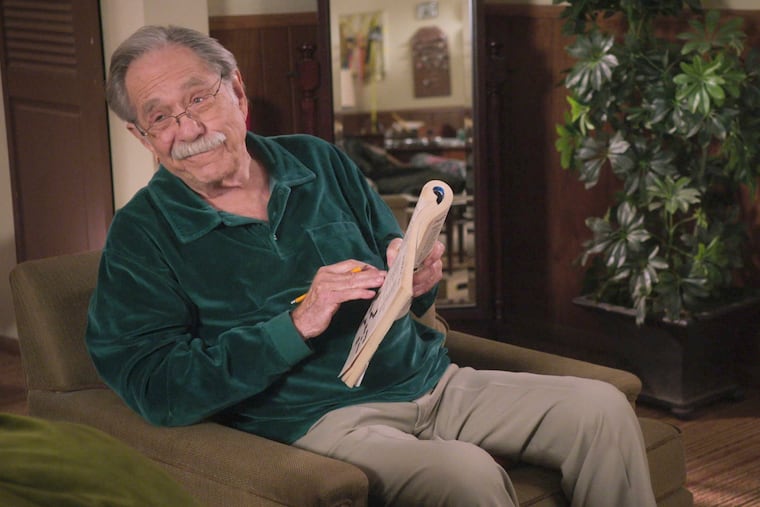George Segal, actor of roguish charm and wide dramatic range, has died
Mr. Segal starred in movies and took on long-running parts in the TV sitcoms “Just Shoot Me!” and “The Goldbergs.”

George Segal, 87, an actor who brought a roguish charm to romantic comedy films in the 1970s and was also known for his Oscar-nominated role in the psychological drama Who’s Afraid of Virginia Woolf? before taking on long-running parts in the TV sitcoms Just Shoot Me! and The Goldbergs, died Mach 23 in Santa Rosa, Calif.
The cause was complications from bypass surgery, his wife, Sonia, said in a statement.
Mr. Segal was a versatile actor who adapted easily to a wide range of roles, including as a black-market-dealing prisoner of war in King Rat (1965), a police officer with a possessive mother in No Way to Treat a Lady (1968), a jewel thief in The Hot Rock (1972), a lawyer in love with his ex-wife in Blume in Love (1973) and a compulsive gambler who risks his middle-class life in the acclaimed 1974 Robert Altman film California Split.
Handsome but approachable, Mr. Segal brought a natural, modern urbanity to the screen, representing a change from the studio-polished personas of an older generation of Hollywood actors. Refusing to change his name or have a nose job, he had a wry, ever-hopeful acting style filtered through an open, almost neurotic sensibility.
In the 1970s, Mr. Segal seemed to be poised for stardom on the level of such contemporaries as Dustin Hoffman, Jack Nicholson and Robert Redford, but he was never in a blockbuster hit movie.
He appeared alongside many acclaimed actresses, including Barbra Streisand in The Owl and the Pussycat (1970), Ruth Gordon in Where’s Poppa? (1970), Jane Fonda in Fun With Dick and Jane (1977) and Glenda Jackson, who won an Oscar for best actress playing opposite Mr. Segal in the 1973 romantic comedy A Touch of Class.
Mr. Segal’s only Oscar nomination came for his portrayal of a young college professor in Who’s Afraid of Virginia Woolf? (1966), a filmed version of the emotionally fraught play by Edward Albee. Mike Nichols directed a cast the included Hollywood superstars Richard Burton and Elizabeth Taylor as George and Martha, a middle-aged couple in a college town, bitterly feuding with each other and their failed dreams.
Mr. Segal and his young wife, played by Sandy Dennis, join them for drinks after a party and get caught up in the emotional maelstrom. The night turns into an alcohol-sodden marathon of recrimination, anger, self-laceration and infidelity. Any residual naivete, on the part of the audience or Mr. Segal’s character, is shattered by the end.
“Segal demonstrates a talent that until now, on the screen, at any rate, was only latent,” critic James Powers wrote in a review for the Hollywood Reporter. “Segal must be glib, assured, and then be snapped and broken, and retain some of his cockiness (in one meaning or another), but be different.”
Throughout his career as an actor, Mr. Segal also made appearances as a jovial banjo player in Dixieland bands and as a guest on talk shows. As he aged out of romantic leading man roles, he adapted easily to character roles. In Just Shoot Me!, which aired on NBC from 1997 to 2003, he played the oft-married publisher of a fashion magazine.
Since 2013, Mr. Segal played a lovable, eccentric grandfather, Albert “Pops” Solomon, in The Goldbergs, an ABC sitcom set in the 1980s in the Philadelphia suburbs. The final episode in which Mr. Segal appeared is scheduled to air on April 7.
“Today we lost a legend. It was a true honor being a small part of George Segal’s amazing legacy,” said Goldbergs creator Adam Goldberg. “By pure fate, I ended up casting the perfect person to play Pops. Just like my grandfather, George was a kid at heart with a magical spark.”
Born in 1934 in Great Neck, New York, the third son of a malt and hops dealer, Mr. Segal began entertaining at the age of 8, performing magic tricks for neighborhood children.
He graduated from the George School in Newtown in 1951 and attended Haverford College before graduating from Columbia University, where organized Bruno Linch and His Imperial Band, for which he also played banjo.
After a stint on Broadway in Eugene O’Neill’s The Iceman Cometh, he was drafted into the Army. Discharged in 1957, he returned to the stage and would begin getting small film roles.
In 1956 Mr. Segal married television story editor Marion Sobel and they had two daughters, Elizabeth and Polly, before divorcing in 1981.
He married his second wife, Linda Rogoff, in London in 1982 and was devastated when she died of a stomach disease 14 years later.
“It was a time when I said, ‘It’s not adding up; I don’t get it anymore,’ ” he recalled to an interviewer in 1999. “With Linda dying, I lost interest in everything. I worked just to make a living. Acting, like life, became a joyless job.”
Eventually he reconnected with Sonia Schultz Greenbaum, who had been his girlfriend in high school some 45 years earlier. They talked on the telephone, sometimes as long as six hours, and were married just a few months after reuniting.
“She helped me through the worst days of my life just listening to me unload,” Mr. Segal said in 1999. “It was magic.”
This article includes information from the Associated Press.